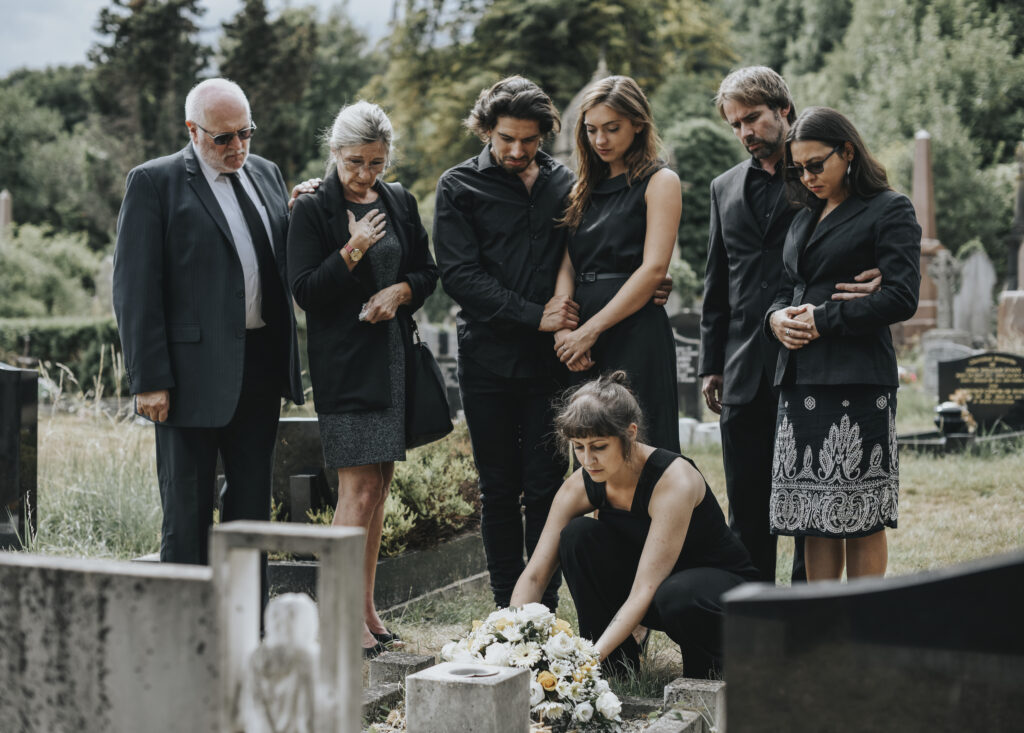Too often, someone schedules a consultation with one of the Beck, Lenox & Stolzer Estate Planning and Elder Law attorneys, and one of the first questions is, “Do I have to pay off my deceased spouse’s credit card debt?” When you consider the average credit card balance in 2023 was $6,365, chances are many Americans will leave an unpaid credit card balance if they die suddenly. Must heirs pay credit card debt? A recent article from yahoo! finance asks and answers the question, “What happens to credit card debt when you die?”
Many people think death leads to debt forgiveness. However, this isn’t the case. Some forms of debt, like federal student loans, may be discharged if the borrower dies. However, this is the exception and not the rule.
Credit card debt doesn’t evaporate when the cardholder goes away. It generally must be paid by the estate, which means the amount of debt will reduce your loved one’s inheritance. In some cases, credit card debt might mean they don’t receive an inheritance at all.
Outstanding credit card debt is paid by your estate, which means your individual assets owned at the time of death, including real estate, bank accounts, or any other valuables acquired during your life.
Upon death, your will is submitted to the court for probate, the legal process of reviewing the transfer of assets. It ensures that all debts and taxes are paid before issuing the remaining assets to your designated heirs.
If you have a will, you likely have an executor—the person you named responsible for carrying out your wishes. They are responsible for settling any outstanding debts of the estate. If there’s no will, the court will appoint an administrator or a personal representative to manage the assets.
Must heirs pay credit card debt? In most cases, your heirs won’t have to pay off your credit card debt with their own funds. However, you may be surprised to learn there are exceptions:
- Married people living in community property states. In a community property state, the deceased spouse is responsible for repaying credit card debt incurred by their spouse. In 2023, those states include Arizona, California, Idaho, Louisiana, Nevada, New Mexico, Texas, Washington and Wisconsin.
- Credit cards with joint owners. If you had a joint credit card shared with a partner or relative, the surviving joint owner is responsible for the full outstanding balance. Only joint users are responsible for repaying credit card debt. If your partner was an authorized user and not an owner, they aren’t legally responsible for the debt.
Debt collectors may try to collect from family members, even though the family members are not responsible for paying credit card debts. The debt collector may not state or imply that the family member is personally responsible for the debt, unless they are the spouse in a community property state or a joint account owner.
If a debt collector claims you personally owe money, request a debt validation letter showing your legal responsibility for the debt. Otherwise, you have no legal obligation to pay for it yourself.
When someone dies, their estate is responsible for paying debts, including credit card debt. However, debt is repaid in a certain order. In general, unsecured debt like credit card balances are the lowest priority and paid last.
Some accounts are exempt from debt payment:
- Money in a 401(k) or IRA with a designated beneficiary goes directly to the beneficiary and is exempt from any debt repayment.
- Life insurance death benefits go directly to the named beneficiary and go directly to the beneficiaries.
If a loved one has died and they had credit cards, stop using any of their cards, even if you are an authorized user or joint owner. Review the deceased’s credit report to learn what accounts are open in their name and the balance on each account. Notify credit card issuers and alert credit bureaus—Equifax, Experian, and TransUnion. You may need to submit a written notification, a copy of the death certificate and proof of your being an authorized person to act on behalf of the estate.
Talk with an estate planning attorney to find out how your state’s laws treat the outstanding debt of a deceased person and whether heirs must pay off any credit card debt. For a free phone consultation with one of the attorneys at Beck, Lenox & Stolzer, schedule here or call our office.
Reference: yahoo! finance (Nov. 9, 2023) “What happens to credit card debt when you die?”









